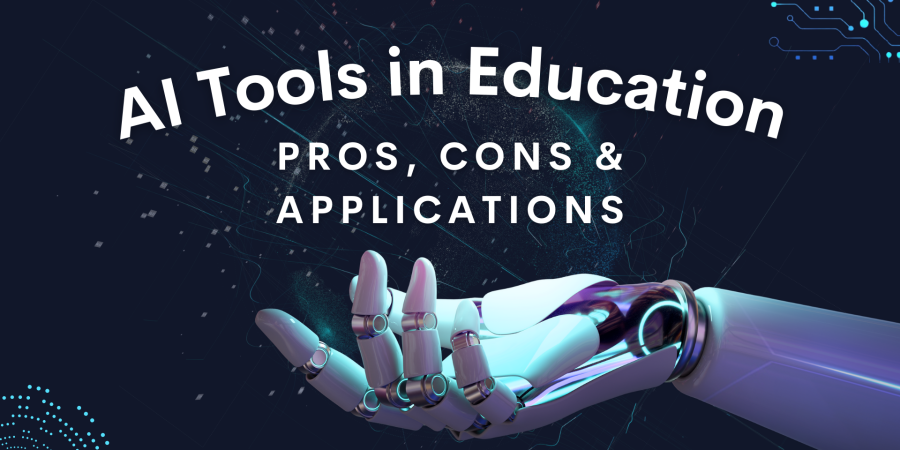

Artificial Intelligence (AI) has revolutionized various sectors, including education, by offering innovative tools and technologies that enhance learning experiences. These AI tools in education leverage machine learning algorithms, natural language processing (NLP), and other advanced techniques to personalize learning, automate administrative tasks, and provide valuable insights. Here, we explore some key AI tools transforming education.
1. Personalized Learning Platforms:
AI-powered personalized learning platforms analyze students' learning patterns, preferences, and performance data to tailor educational content accordingly. These platforms offer adaptive learning paths, recommending specific resources, activities, or exercises based on individual strengths, weaknesses, and learning styles.
2. Intelligent Tutoring Systems (ITS):
ITS utilizes AI algorithms to provide personalized tutoring experiences similar to human tutors. These systems assess students' knowledge gaps, offer targeted instruction, and provide real-time feedback. By adapting to each student's pace and learning trajectory, ITS fosters better comprehension and retention of concepts.
3. Chatbots and Virtual Assistants:
Educational chatbots and virtual assistants equipped with AI capabilities offer instant support to students and educators. They can answer questions, provide explanations, offer study tips, and even assist in administrative tasks such as course enrollment or scheduling. These AI-driven assistants improve accessibility to resources and enhance student engagement.
4. Automated Grading and Assessment:
AI automates the grading and assessment process by evaluating assignments, quizzes, and exams. Machine learning models trained on sample data can accurately assess open-ended responses, code submissions, and even creative projects. Automated grading saves educators time, enables faster feedback turnaround, and ensures consistency in evaluation.
5. Data Analytics for Student Performance:
AI-driven data analytics tools analyze vast amounts of educational data to identify patterns and trends in student performance. These insights help educators understand students' progress, predict learning outcomes, and intervene when necessary to provide timely support. By leveraging predictive analytics, educators can implement targeted interventions to improve student success rates.
6. Content Creation and Curation:
AI algorithms assist in creating and curating educational content across various formats, including text, audio, and video. Natural language generation (NLG) tools can generate personalized study materials, summaries, and explanations based on specific topics or learning objectives. Content curation platforms utilize AI to recommend relevant resources, articles, and multimedia content aligned with learners' interests and needs.
In conclusion, AI tools in education are transforming traditional learning approaches by offering personalized, adaptive, and efficient learning experiences. These tools empower students to learn at their own pace, enable educators to provide targeted support, and optimize administrative processes in educational institutions. As AI continues to evolve, its integration into education holds immense potential to revolutionize teaching and learning methodologies.
